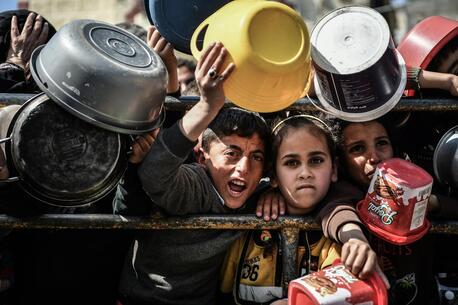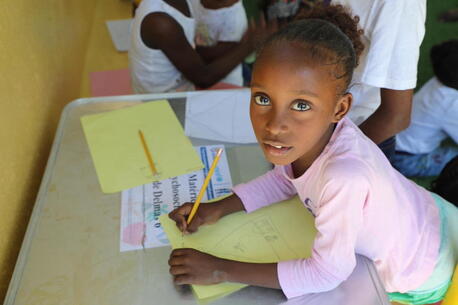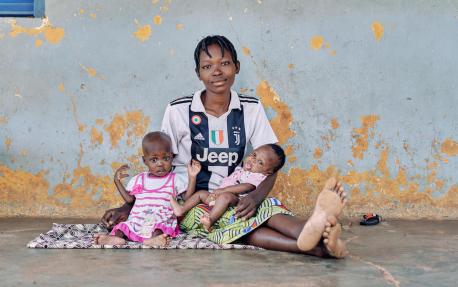
UNICEF: 10M Children in Extreme Jeopardy in Burkina Faso, Mali and Niger
Grave threats to security and survival are mounting in the central Sahel region of Africa. In a new Child Alert report, UNICEF explains the urgent humanitarian needs of already vulnerable children and families in countries gripped by spiraling armed conflict and punishing climate shocks.
Insecurity in central Sahel seeping into neighboring countries
An escalating humanitarian crisis for children in central Sahel countries Burkina Faso, Mali and Niger is spilling into neighboring coastal countries — Benin, Côte d’Ivoire, Ghana and Togo — as conflict between armed groups and national security forces intensifies and spreads.
According to a new UNICEF Child Alert, the rapidly unfolding situation has put millions of young lives and futures in extreme jeopardy.
Children are increasingly caught up in violent clashes, even targeted by non-state armed groups. More and more children and families are becoming displaced as they attempt to flee to safety. More and more of the displaced are crossing borders, arriving in remote communities where safe water and other essential resources are already scarce, and growing scarcer. The Sahel region is one of the hardest hit by climate change impacts, and children already have very limited access to the support and services they need to survive.
An estimated 10 million children are in dire need of humanitarian assistance — twice as many as in 2020 — with another 4 million children at grave risk, according to the report.
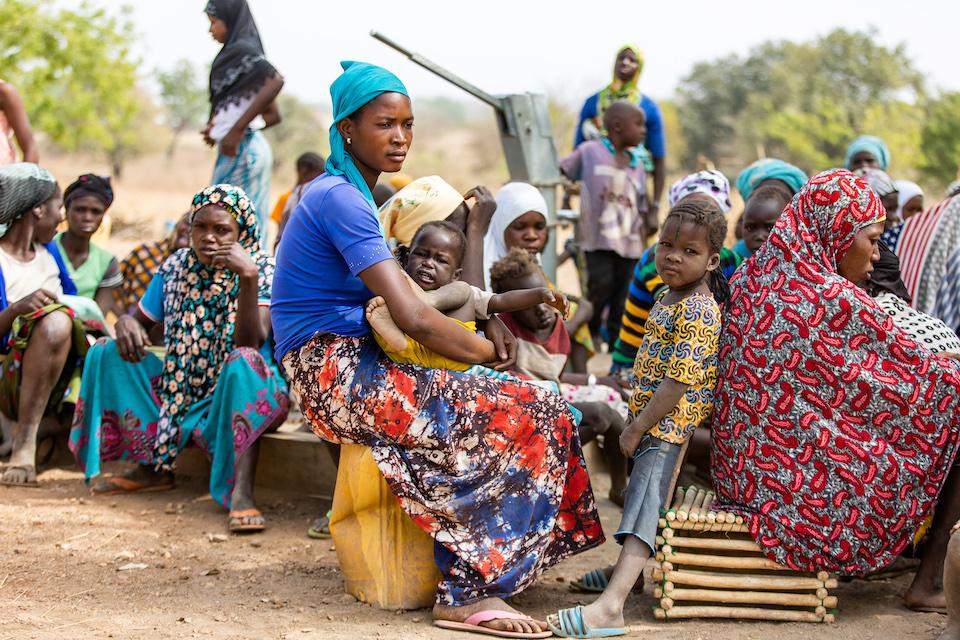
“The year 2022 was particularly violent for children in the central Sahel," UNICEF Regional Director for West and Central Africa Marie-Pierre Poirier said. "All parties to the conflict need to urgently stop attacks both on children, their schools, health centers and homes.”
Millions of young lives and futures on the line
In Burkina Faso, three times more children were killed during the first nine months of 2022 than in the same period in 2021, according to UN data. Most of the children died from gunshot wounds during attacks on their villages or as a result of improvised explosive devices or explosive remnants of war.
The armed conflict has become increasingly brutal. Children are being directly targeted by non-state armed groups who operate across vast swathes of Mali and Burkina Faso, and increasingly in Niger, according to UNICEF. Hundreds of children have been abducted across the three countries, many of them girls. Some groups are blockading towns and villages and sabotaging water networks.
Over 20,000 people in the border areas between these three countries are projected to reach ‘catastrophe’-level food insecurity by June.
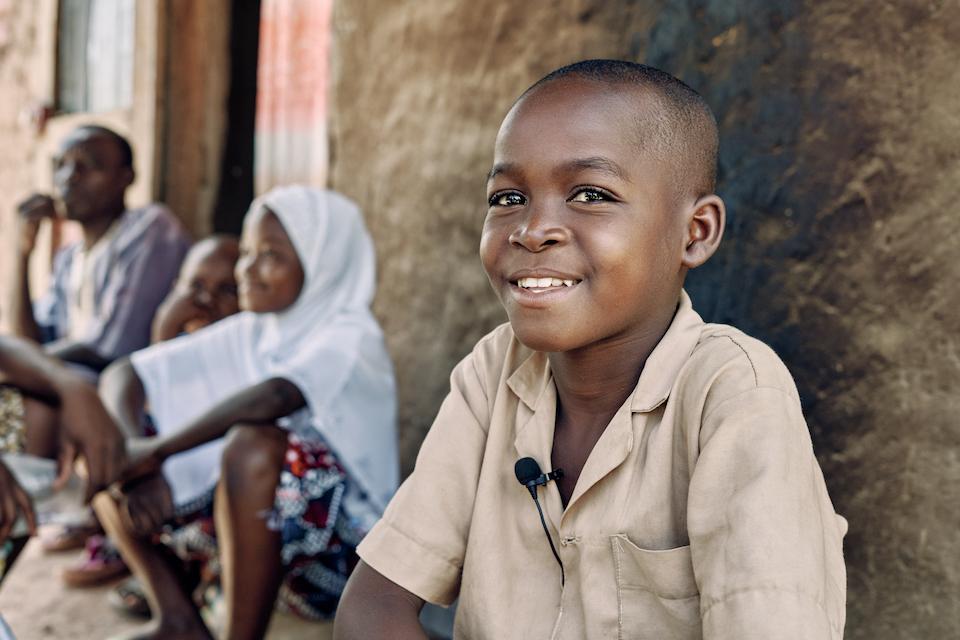
Armed groups that oppose state-administered education systematically burn and loot schools, and threaten, abduct or kill teachers. Over 8,300 schools have shut down across the three countries because they were directly targeted, teachers have fled, or because parents were displaced or too frightened to send their children to school.
UNICEF is working with governments and local partners to scale up social services and protection
UNICEF is urging governments in affected countries to scale up their investments in essential social services and protection as key pathways to peace and security; the scale-up should focus on reinforcing and supporting local systems, networks and workforces that are the first responders during crises, and that can consistently reach children, particularly in hard-to-reach communities.
As needs grow and access becomes increasingly constrained by insecurity, UNICEF is working with its partners to ensure the continuity of services, in part by building local capacities to deliver those services — while adapting them to be both climate and conflict resilient.
This work includes:
- training teachers and health, protection and social workers to rapidly identify and respond to individual children's needs
- contracting local enterprises to improve water and sanitation systems and to provide temporary learning spaces where schools are not accessible
- installing solar-powered water and vaccine storage systems that provide uninterrupted service during frequent electricity outages while also reducing operating costs
UNICEF has a large presence in Burkina Faso, Mali and Niger, with roughly 580 staff members working across three national offices and 12 sub-offices, including in some of the most volatile areas. Long before the current crisis began to unfold, children in all three countries were already in the midst of an acute development emergency, with children dying of hunger and disease at some of the fastest rates in the world.
Country offices in Benin, Côte d’Ivoire, Ghana and Togo are expanding their presence and investing in emergency preparedness while scaling up programming in affected areas in cooperation with local authorities, communities and NGO partners. UNICEF is also finding ways to engage young people and equip them with skills to improve welfare, increase employability and build peace within their communities.
UNICEF delivered for children in 2022, in health, nutrition, education — but all programming needs to ramp up fast
UNICEF's impact for children in the region in 2022 included, for example, reaching over 385,000 children with measles vaccinations in Mali – nearly double the planned target for the entire year — and providing lifesaving treatment to over 400,000 severely malnourished children in Niger. In Burkina Faso, UNICEF education and life-skills support reached over 740,000 out-of-school children through formal and informal programs.
Strengthening protection for children affected by the armed conflict — ending and preventing grave violations against children, facilitating the release and reintegration of child soldiers, reuniting separated or unaccompanied children with their families — remains a top UNICEF priority. In 2022, working with local partners, UNICEF Mali reached over 440 children released from armed forces or groups with protection or reintegration support, and over 2,000 unaccompanied and separated children were reunited with their families or provided with suitable alternative care – more than the 1,200 projected for the entire year.
“The scale of the crisis in the central Sahel and, increasingly, in neighboring coastal countries urgently requires a stronger humanitarian response," Poirier said, "as well as long-term flexible investment in resilient essential social services that will help consolidate social cohesion, sustainable development, and a better future for children."
UNICEF's humanitarian appeal for funding to respond to the crisis in the central Sahel remains chronically and critically underfunded. Your donation can help make a difference for children in need. Donate now.

